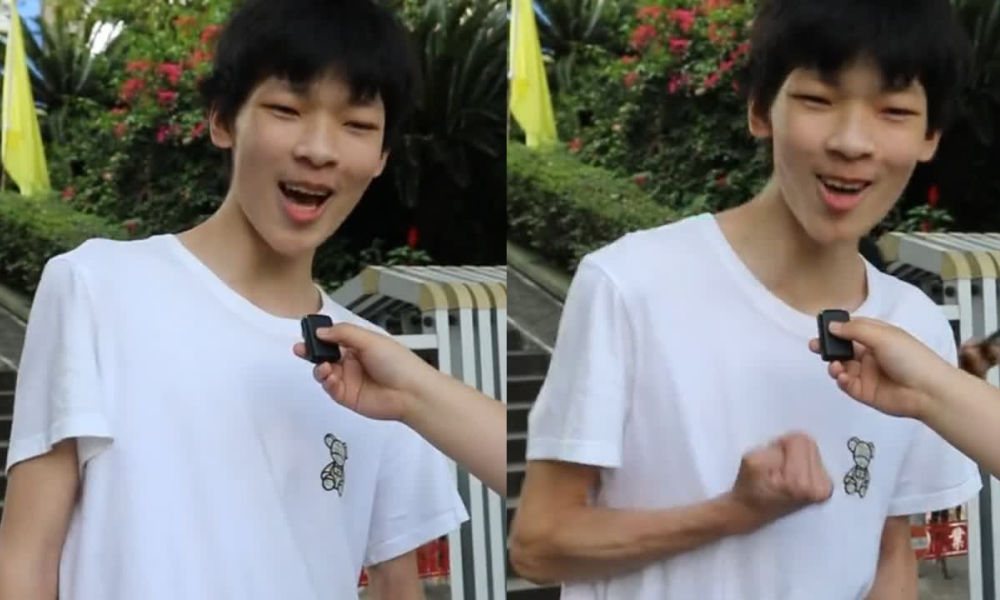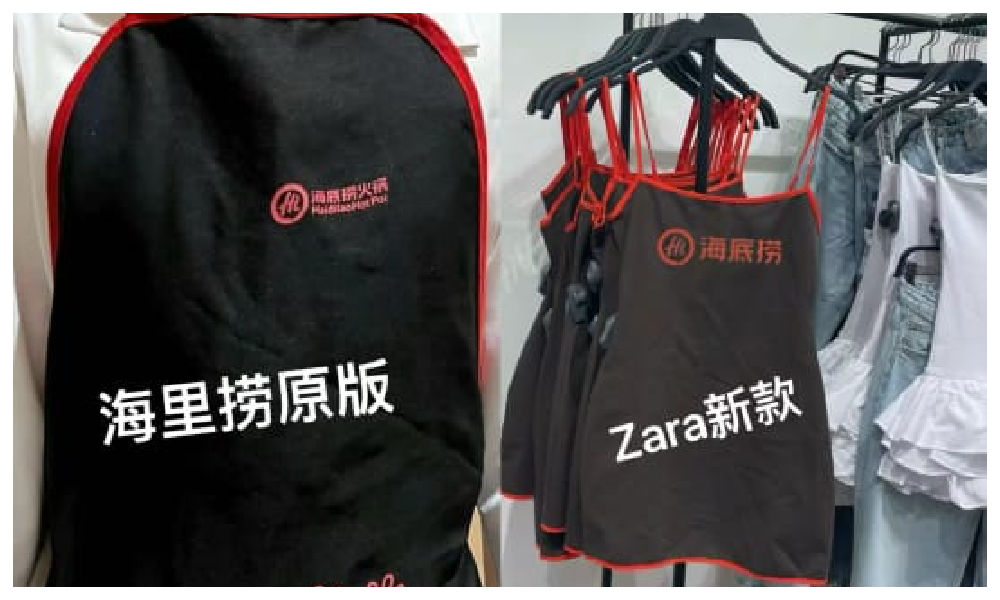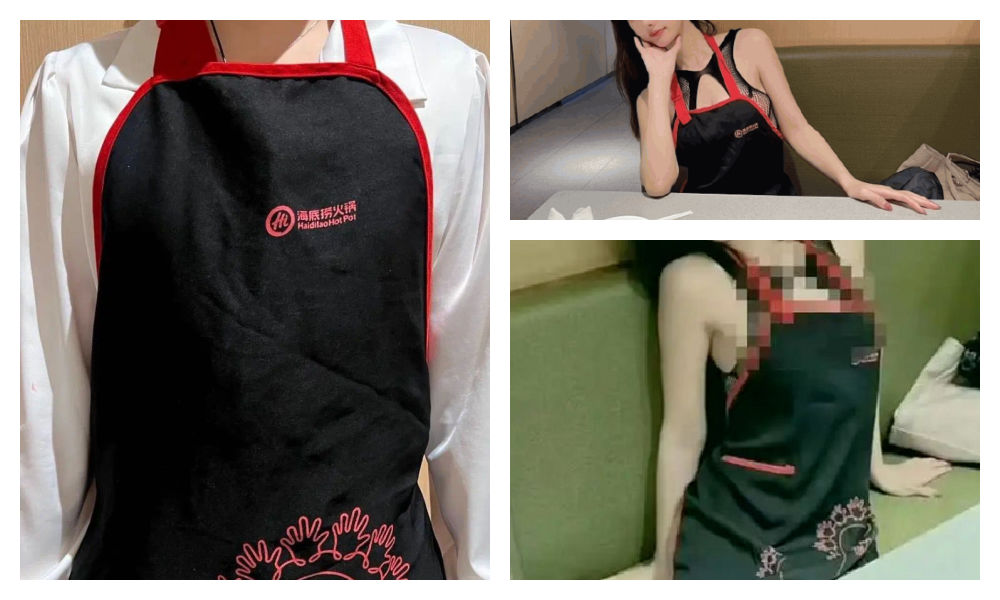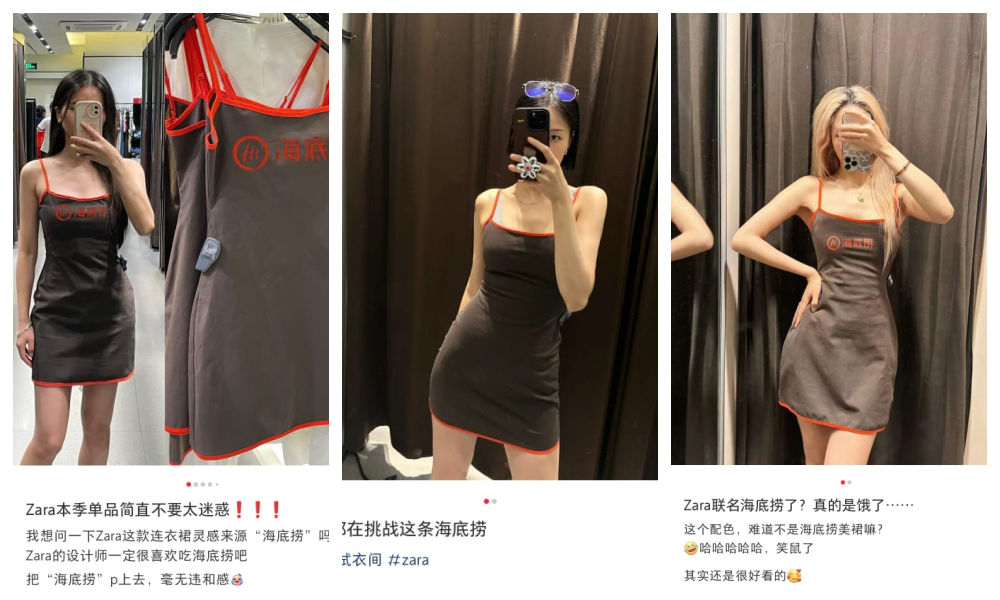China Memes & Viral
How the Gaokao Unexpectly Brought China’s Holiday Arrangement Discussion Back on the Table
Interviewed exam candidates seized the opportunity to express their stance on China’s ‘make up workday’ holidays and advocated against weekend-weekday swaps.
Published
11 months agoon

Last week, China’s national college entrance examinations, better known as the “Gaokao” (高考), commenced on June 7th with a new record-high of 12.91 million registered examinees. According to China’s Ministry of Education, the number of participating students has increased by 980,000 compared to last year’s figures.
As the Gaokao is an annual event that captures great attention of Chinese society, some topics have generated extensive online discussion that keep going even after the exams have finished. From the essay topic (#高考作文#) to the level of difficulty in math (#数学到底难不难#), there is always a wide range of related subjects and incidents that trigger discussions before, during, and even after the exams.
Consequently, Chinese news outlets have heightened their focus on the Gaokao, with one of their recurring features being interviews with students who have just completed their exams and are the first to exit the examination venues.
In recent years, comments made by some students during these interviews have frequently gone viral on Chinese social networks, primarily due to their humorous or nonchalant nature.
Calls to End Weekend ‘Make-up Working Days’
With Chinese netizens recognizing the news value of these interviews, a hashtag trended on June 6th, the day before the exams began. The hashtag, titled “First Students Exiting the Exam Venue, We’d Like Your Help” (#第一个出考场的考生麻烦你了#) urged the students who would be interviewed straight after their exam to voice their opinions on various issues, representing a cause on behalf of others.
One of the most prominent requests associated with the hashtag was a plea to revise China’s holiday arrangements and discontinue the practice of combining public holidays and weekends to create extended holidays (取消调休).
In China, the General Office of the State Council usually announces the holidays for the upcoming year approximately two or three weeks before the start of the year.
The holiday schedule in China typically includes two significant week-long holidays, commonly known as Golden Week: the Spring Festival (also known as Chinese New Year) and the National Day holiday. Additionally, there are several 3- to 5-day holidays throughout the year. These extended holidays are often created by rearranging weekends and weekdays around the actual holiday dates.
As a result, there are instances where Saturdays and Sundays are designated as official workdays to compensate as a ‘make-up working day’ for the extended breaks, something that is not well received by most employees. The Beijinger recently reported that in 2012, an online survey already revealed that more than 70 percent of respondents were not satisfied with these holiday arrangements.
As an example, let’s consider the upcoming Dragon Boat Festival, which falls on June 22 (Thursday). The official holiday period for this festival is from June 22 to 24 (Thursday to Saturday). To create an extended holiday, one working day is adjusted by swapping June 25 (Sunday) with June 23 (Friday). This arrangement results in a 3-day holiday, followed by a consecutive six-day work period.
It became evident that recent exam takers also became aware of the trending call on social media to discontinue the practice of combining public holidays and weekends for extended breaks. During interviews, several students voiced this request (see video here and here).

This student went viral after advocating against make-up weekend work days.
A hashtag related to this, namely “Exam Candidates Demand Cancellation of Holiday Adjustments” (#考生喊话取消调休#) garnered more than 410 million views in a single day on June 9, receiving widespread support and applause from Chinese netizens.
To Swap or Not to Swap, That Is the Question
Since the establishment of the People’s Republic of China in 1949, China’s holiday arrangement has undergone various transformations. Initially, there were only four official holidays: New Year’s Day, Spring Festival, Labour Day, and National Day. These holidays provided a combined total of seven days off.
In 1999, the holiday policy in China underwent a revision aimed at promoting tourism and consumption. As a result, Chinese citizens were granted three consecutive days off for the Spring Festival, Labour Day, and National Day.
Subsequently, the policy was further modified to create a seven-day holiday period by bridging the weekends before and after these holidays. This arrangement gave rise to the concept of the Golden Week (黄金周), a highly anticipated and popular vacation period.
In 2007, the holiday policy in China underwent another revision. This revision entailed reducing the Labor Day holiday from three days to one day, while adding three traditional festivals — Qingming Festival (Tomb-sweeping Day), Dragon Boat Festival, and Mid-Autumn Festival — each with a one-day holiday.
Consequently, this allowed for the formation of two seven-day holidays during the Spring Festival and National Day, as well as five shorter extended holidays (known as 小长假 or “small long holidays”) for New Year’s Day, Qingming Festival, Labor Day, Dragon Boat Festival, and Mid-Autumn Festival. These extended holidays were achieved by swapping weekends with weekdays next to the actual holiday.
The Golden Week and other “small long holidays” have enjoyed popularity for years, although occasional complaints have arisen. However, in the wake of the pandemic, which has reshaped people’s perspectives on life, there has been an increase in discussions surrounding holiday arrangements that leave individuals feeling exhausted due to the practice of sacrificing weekends in exchange for time off.
The discourse sparked by the Gaokao is not the sole discussion that has taken place this year. At the start of the year, when the holiday arrangement for Chinese New Year was announced, there was already a fervent online debate. This was followed by further discussions prompted by the proposals put forth by NPC deputies (#代表建议取消调休制度#, #代表建议延长春节法定假期#) during the Two Sessions held in March.
This year, the Qingming Festival fell on April 5th, which coincided with a Wednesday. Since no special arrangements were made, many people applauded the decision, as it meant there was no need for additional compensation days. However, some individuals expressed disappointment as they were unable to return to their hometowns to participate in the traditional tomb-sweeping activities.
It seems that the Chinese government is still in the process of finding a balance between promoting consumption through extended holidays and taking into account the public’s feedback. Will the current discussions and debates lead to new revisions in holiday policies? Time will tell. At least for now, the exam students did their best to bring awareness to an issue that so many weekend-loving young workers find important.
By Wendy Huang
Follow @whatsonweibo
Spotted a mistake or want to add something? Please let us know in comments below or email us. Please note that your comment below will need to be manually approved if you’re a first-time poster here.
©2023 Whatsonweibo. All rights reserved. Do not reproduce our content without permission – you can contact us at info@whatsonweibo.com
Wendy Huang is a China-based Beijing Language and Culture University graduate who currently works for a Public Relations & Media software company. She believes that, despite the many obstacles, Chinese social media sites such as Weibo can help Chinese internet users to become more informed and open-minded regarding various social issues in present-day China.

Also Read
China Insight
The Tragic Story of “Fat Cat”: How a Chinese Gamer’s Suicide Went Viral
The story of ‘Fat Cat’ has become a hot topic in China, sparking widespread sympathy and discussions online.
Published
2 days agoon
May 9, 2024
The tragic story behind the recent suicide of a 21-year-old Chinese gamer nicknamed ‘Fat Cat’ has become a major topic of discussion on Chinese social media, touching upon broader societal issues from unfair gender dynamics to businesses taking advantage of grieving internet users.
The story of a 21-year-old Chinese gamer from Hunan who committed suicide has gone completely viral on Weibo and beyond this week, generating many discussions.
In late April of this year, the young man nicknamed ‘Fat Cat’ (胖猫 Pàng Māo, literally fat or chubby cat), tragically ended his life by jumping into the river near the Chongqing Yangtze River Bridge (重庆长江大桥) following a breakup with his girlfriend. By now, the incident has come to be known as the “Fat Cat Jumping Into the River Incident” (胖猫跳江事件).
News of his suicide soon made its rounds on the internet, and some bloggers started looking into what was behind the story. The man’s sister also spoke out through online channels, and numerous chat records between the young man and his girlfriend emerged online.
One aspect of his story that gained traction in early May is the revelation that the man had invested all his resources into the relationship. Allegedly, he made significant financial sacrifices, giving his girlfriend over 510,000 RMB (approximately 71,000 USD) throughout their relationship, in a time frame of two years.
When his girlfriend ended the relationship, despite all of his efforts, he was devastated and took his own life.
The story was picked up by various Chinese media outlets, and prominent social and political commentator Hu Xijin also wrote a post about Fat Cat, stating the sad story had made him tear up.
As the news spread, it sparked a multitude of hashtags on Weibo, with thousands of netizens pouring out their thoughts and emotions in response to the story.
Playing Games for Love
The main part of this story that is triggering online discussions is how ‘Fat Cat,’ a young man who possessed virtually nothing, managed to provide his girlfriend, who was six years older, with such a significant amount of money – and why he was willing to sacrifice so much in order to do so.
The young man reportedly was able to make money by playing video games, specifically by being a so-called ‘booster’ by playing with others and helping them get to a higher level in multiplayer online battle games.
According to his sister, he started working as a ‘professional’ video gamer as a means of generating money to satisfy his girlfriend, who allegedly always demanded more.
He registered a total of 36 accounts to receive orders to play online games, making 20 yuan per game (about $2.80). Because this consumed all of his time, he barely went out anymore and his social life was dead.
In order to save more money, he tried to keep his own expenses as low as possible, and would only get takeout food for himself for no more than 10 yuan ($1,4). His online avatar was an image of a cat saying “I don’t want to eat vegetables, I want to eat McDonald’s.”

The woman in question who he made so many sacrifices for is named Tan Zhu (谭竹), and she soon became the topic of public scrutiny. In one screenshot of a chat conversation between Tan and her boyfriend that leaked online, she claimed she needed money for various things. The two had agreed to get married later in this year.
Despite of this, she still broke up with him, driving him to jump off the bridge after transferring his remaining 66,000 RMB (9135 USD) to Tan Zhu.
As the story fermented online, Tan Zhu also shared her side of the story. She claimed that she had met ‘Fat Cat’ over two years ago through online gaming and had started a long distance relationship with him. They had actually only met up twice before he moved to Chongqing. She emphasized that financial gain was never a motivating factor in their relationship.
Tan additionally asserted that she had previously repaid 130,000 RMB (18,000 USD) to him and that they had reached a settlement agreement shortly before his tragic death.
Ordering Take-Out to Mourn Fat Cat
– “I hope you rest in peace.”
– “Little fat cat, I hope you’ll be less foolish in your next life.”
– “In your next life, love yourself first.”
These are just a few of the messages left by netizens on notes attached to takeout food deliveries near the Chongqing Yangtze River Bridge.
As Fat Cat’s story stirred up significant online discussion, with many expressing sympathy for the young man who rarely indulged in spending on food and drinks, some internet users took the step of ordering McDonalds and other food delivery services to the bridge, where he tragically jumped from, in his honor.
This soon snowballed into more people ordering food and drinks to the bridge, resulting in a constant flow of delivery staff and a pile-up of take-out bags.

Delivery food on the bridge, photo via Weibo.
However, as the food delivery efforts picked up pace, it came to light that some of the deliveries ordered and paid for were either empty or contained something different; certain restaurants, aware of the collective effort to honor the young man, deliberately left the food boxes empty or substituted sodas or tea with tap water.

At least five restaurants were caught not delivering the actual orders. Chinese bubble tea shop ChaPanda was exposed for substituting water for milk tea in their cups. On May 3rd, ChaPanda responded that they had fired the responsible employee.
Another store, the Zhu Xiaoxiao Luosifen (朱小小螺蛳粉), responded on that they had temporarily closed the shop in question to deal with the issue. Chinese fast food chain NewYobo (牛约堡) also acknowledged that at least twenty orders they received were incomplete.
Fast food company Wallace (华莱士) responded to the controversy by stating they had dismissed the employees involved. Mixue Ice Cream & Tea (蜜雪冰城) issued an apology and temporarily closed one of their stores implicated in delivering empty orders.
In the midst of all the controversy, Fat Cat’s sister asked internet users to refrain from ordering take-out food as a means of mourning and honoring her brother.
Nevertheless, take-out food and flowers continued to accumulate near the bridge, prompting local authorities to think of ways of how to deal with this unique method of honoring the deceased gamer.
Gamer Boy Meets Girl
On Chinese social media, this story has also become a topic of debate in the context of gender dynamics and social inequality.
There are some male bloggers who are angry with Tan Zhu, suggesting her behaviour is an example of everything that’s supposedly “wrong” with Chinese women in this day and age.
Others place blame on Fat Cat for believing that he could buy love and maintain a relationship through financial means. This irked some feminist bloggers, who see it as a chauvinistic attitude towards women.
A main, recurring idea in these discussions is that young Chinese men such as Fat Cat, who are at the low end of the social ladder, are actually particularly vulnerable in a fiercely competitive society. Here, a gender imbalance and surplus of unmarried men make it easier for women to potentially exploit those desperate for companionship.
The story of Fat Cat brings back memories of ‘Mo Cha Official,’ a not-so-famous blogger who gained posthumous fame in 2021 when details of his unhappy life surfaced online.
Likewise, the tragic tale of WePhone founder Su Xiangmao (苏享茂) resurfaces. In 2017, the 37-year-old IT entrepreneur from Beijing took his own life, leaving behind a note alleging blackmail by his 29-year-old ex-wife, who demanded 10 million RMB (±1.5 million USD) (read story).
Another aspect of this viral story that is mentioned by netizens is how it gained so much attention during the Chinese May holidays, coinciding with the tragic news of the southern China highway collapse in Guangdong. That major incident resulted in the deaths of at least 48 people, and triggered questions over road safety and flawed construction designs. Some speculate that the prominence given to the Fat Cat story on trending topic lists may have been a deliberate attempt to divert attention away from this incident.
‘Fat Cat’ was cremated. His family stated their intention to take necessary legal steps to recover the money from his former girlfriend, but Tan Zhu reportedly already reached an agreement with the father and settled the case. Nevertheless, the case continues to generate discussions online, with some people wondering: “Is it over yet? Can we talk about something different now?”

Fat Cat images projected in Times Square
However, given that images of the ‘Fat Cat’ avatar have even appeared in Times Square in New York by now (Chinese internet users projected it on one of the big LED screens), it’s likely that this story will be remembered and talked about for some time to come.
By Manya Koetse
– With contributions by Miranda Barnes and Ruixin Zhang
Independently reporting China trends for over a decade. Like what we do? Support us and get the story behind the hashtag by subscribing:
Spotted a mistake or want to add something? Please let us know in comments below or email us. First-time commenters, please be patient – we will have to manually approve your comment before it appears.
©2024 Whatsonweibo. All rights reserved. Do not reproduce our content without permission – you can contact us at info@whatsonweibo.com.
China Brands, Marketing & Consumers
Zara Dress Goes Viral in China for Resemblance to Haidilao Apron
Who’s gonna buy this Zara dress in China? “I’m afraid that someone will say I stole the apron from Haidilao.”
Published
3 weeks agoon
April 19, 2024
A short dress sold by Zara has gone viral in China for looking like the aprons used by the popular Chinese hotpot chain Haidilao.
“I really thought it was a Zara x Haidialo collab,” some customers commented. Others also agree that the first thing they thought about when seeing the Zara dress was the Haidilao apron.

The “original” vs the Zara dress.
The dress has become a popular topic on Xiaohongshu and other social media, where some images show the dress with the Haidilao logo photoshopped on it to emphasize the similarity.

One post on Xiaohongshu discussing the dress, with the caption “Curious about the inspiration behind Zara’s design,” garnered over 28,000 replies.
Haidilao, with its numerous restaurants across China, is renowned for its hospitality and exceptional customer service. Anyone who has ever dined at their restaurants is familiar with the Haidilao apron provided to diners for protecting their clothes from food or oil stains while enjoying hotpot.
These aprons are meant for use during the meal and should be returned to the staff afterward, rather than taken home.

The Haidilao apron.
However, many people who have dined at Haidilao may have encountered the following scenario: after indulging in drinks and hotpot, they realize they are still wearing a Haidilao apron upon leaving the restaurant. Consequently, many hotpot enthusiasts may have an ‘accidental’ Haidilao apron tucked away at home somewhere.
This only adds to the humor of the latest Zara dress looking like the apron. The similarity between the Zara dress and the Haidilao apron is actually so striking, that some people are afraid to be accused of being a thief if they would wear it.
One Weibo commenter wrote: “The most confusing item of this season from Zara has come out. It’s like a Zara x Haidilao collaboration apron… This… I can’t wear it: I’m afraid that someone will say I stole the apron from Haidilao.”

Funnily enough, the Haidilao apron similarity seems to have set off a trend of girls trying on the Zara dress and posting photos of themselves wearing it.

It’s doubtful that they’re actually purchasing the dress. Although some commenters say the dress is not bad, most people associate it too closely with the Haidilao brand: it just makes them hungry for hotpot.
By Manya Koetse
Independently reporting China trends for over a decade. Like what we do? Support us and get the story behind the hashtag by subscribing:
Spotted a mistake or want to add something? Please let us know in comments below or email us. First-time commenters, please be patient – we will have to manually approve your comment before it appears.
©2024 Whatsonweibo. All rights reserved. Do not reproduce our content without permission – you can contact us at info@whatsonweibo.com.
Subscribe

The Tragic Story of “Fat Cat”: How a Chinese Gamer’s Suicide Went Viral

A Brew of Controversy: Lu Xun and LELECHA’s ‘Smoky’ Oolong Tea

Weibo Watch: The Battle for the Bottom Bed

Zara Dress Goes Viral in China for Resemblance to Haidilao Apron

“Old Bull Eating Young Grass”: 86-Year-Old Chinese Painter Fan Zeng Marries 36-Year-Old Xu Meng

The Tragic Story of “Fat Cat”: How a Chinese Gamer’s Suicide Went Viral

The ‘Two Sessions’ Suggestions: Six Proposals Raising Online Discussions

The Chinese Viral TikTok Song Explained (No, It’s Not About Samsung)

“Old Bull Eating Young Grass”: 86-Year-Old Chinese Painter Fan Zeng Marries 36-Year-Old Xu Meng

Top 9 Chinese Movies to Watch This Spring Festival Holiday

Party Slogan, Weibo Hashtag: “The Next China Will Still Be China”

From Pitch to Politics: About the Messy Messi Affair in Hong Kong (Updated)

More than Malatang: Tianshui’s Recipe for Success

Chengdu Disney: The Quirkiest Hotspot in China

Looking Back on the 2024 CMG Spring Festival Gala: Highs, Lows, and Noteworthy Moments
Get in touch
Would you like to become a contributor, or do you have any tips or suggestions? Get in touch here!
Popular Reads
-

 China Insight2 days ago
China Insight2 days agoThe Tragic Story of “Fat Cat”: How a Chinese Gamer’s Suicide Went Viral
-

 China Insight2 months ago
China Insight2 months agoThe ‘Two Sessions’ Suggestions: Six Proposals Raising Online Discussions
-

 China Music1 month ago
China Music1 month agoThe Chinese Viral TikTok Song Explained (No, It’s Not About Samsung)
-

 China Arts & Entertainment3 weeks ago
China Arts & Entertainment3 weeks ago“Old Bull Eating Young Grass”: 86-Year-Old Chinese Painter Fan Zeng Marries 36-Year-Old Xu Meng



